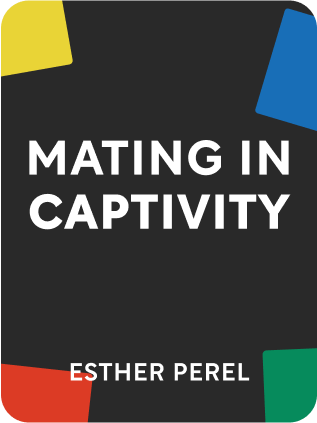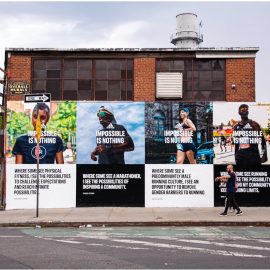

This article is an excerpt from the Shortform book guide to "Mating in Captivity" by Esther Perel. Shortform has the world's best summaries and analyses of books you should be reading.
Like this article? Sign up for a free trial here .
What is monogamy and why do we value it? Are humans naturally monogamous? Where does our obsession with sexual monogamy stem from?
According to couples therapist Esther Perel, our values for sexual monogamy were instilled in childhood. As babies, our parents were utterly devoted to us, and monogamy is our way of recreating this connection. People who didn’t have a connection like this with their mothers as children often want this connection even more than those who did experience it.
In this article, we’ll discuss how our views on monogamy changed throughout history, and why we value it so much.
What Is Monogamy and Why Do We Value It?
Traditionally, monogamy was defined as having only one sexual partner over the course of your entire life. It was used to control women’s reproduction. Fidelity kept things simple—if your wife only ever sleeps with you, you know who’s next in line for your cows when you die. Monogamy wasn’t above love; it was about property and a clearly defined lineage.
Today, the definition of monogamy has become one sexual partner at once. Sexual monogamy is less about practicality and is now an expression of love rather than a control measure for women. Both men and women choose monogamy because it means committing to one person, and that commitment shows love. To have you, your partner has rejected everyone else.
Even though over the past fifty years we’ve become far more open to new family structures such as childless relationships and same-sex marriage, monogamy is still the default, and, arguably, only option. We find divorce more acceptable than infidelity, even though divorce can have huge consequences for a family. We would rather end a relationship than restructure it. We make fidelity about an individual rather than the system (relationship or marriage). If we divorce someone, we think it’s because we chose the wrong person to be with. We don’t consider that it could instead be because a monogamous, high-expectation union has limitations, such as waning desire.
Interestingly, our culture only emphasizes monogamy in relationships. The values that lead to monogamy—being happy with what you have and commitment—are totally different from consumer culture—new, different, better.
Monogamy in Childhood
Our obsession with monogamy, like much of our lives, goes back to our childhoods. As babies, our primary caretakers were utterly devoted to and connected with us (as far as we knew). No one else existed, just us and them, and we seek this same kind of connection—total merging—with our partners.
Of course, this connection wasn’t as exclusive as we thought when we were babies who didn’t know any better. Our mothers knew plenty of other people besides us, including their partners, who also wanted their love.
Nonmonogamy
Even therapists, who often challenge common beliefs, tend to agree with the general population about monogamy. Nonmonogamy, even when consensual, is never viewed as a viable possibility, only as a lack of commitment or fear. There are many common fears associated with nonmonogamy: How can your partner love you but sleep with someone else? What if they fall for them? Once they’ve crossed one line, why not cross all of them?
Perel believes nonmonogamy can work—she’s seen couples let in the third and maintain relationships that are just as committed as more traditional arrangements. Sometimes, people open relationships to strengthen them (distance and mystery are ingredients for desire, and a threat to a relationship can kickstart desire). In these relationships, fidelity is about commitment, and the relationship boundaries are emotional rather than physical. The arrangement is often very clear, with strict rules that can be renegotiated if necessary.
Even open relationships aren’t immune to betrayal, though. Since fidelity in open relationships is about trust, even though the rules are different, they’re still breakable.
Perhaps the general population’s views on nonmonogamy will change. Many things that used to be taboo, such as premarital sex and homosexuality, are now accepted. Open relationships might make the shift from side-eyed to normal too.

———End of Preview———
Like what you just read? Read the rest of the world's best book summary and analysis of Esther Perel's "Mating in Captivity" at Shortform .
Here's what you'll find in our full Mating in Captivity summary :
- Why it's difficult to have a good, erotic life within a long-term relationship
- What makes up our individual sense of desire and our desire for our partners
- Tips on how to retain desire in a committed relationship






